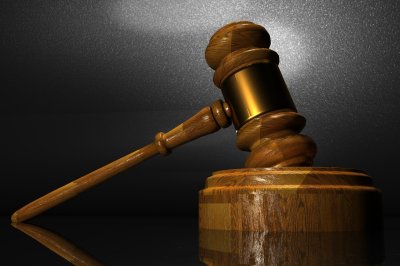May 24 (UPI) — A Texas public library did not violate patrons’ right to free speech by removing books due to their content, the Fifth Circuit Court of Appeals in New Orleans ruled on Friday.
The entire appellate court, in a 10-7 decision, overturned federal district court and appellate court rulings finding the Llano County (Texas) Library System erred in removing 17 books due to their content.
The courts initially ruled that library officials violated plaintiffs’ right to receive information under the Constitution’s Free Speech Clause by removing the books and ordered that they be returned to the library’s shelves.
The plaintiffs are seven library patrons who in 2022 filed a lawsuit challenging the removal of 17 books due to their “content on race, gender and sexuality as well as some children’s books that contained nudity,” the Austin American-Statesman reported.
A federal district court and a three-judge appellate court panel each ruled against the library.
The Fifth Circuit appellate court’s en banc panel on Friday reversed the prior court decisions and dismissed the free speech claims against the Lloyd County Library System for two reasons.
No right to receive information
“Plaintiffs cannot invoke a right to receive information to challenge a library’s removal of books,” Judge Stuart Kyle Duncan wrote in the majority decision.
“Supreme Court precedent sometimes protects one’s right to receive someone else’s speech,” Duncan continued.
“Plaintiffs would transform that precedent into a brave new right to receive information from the government in the form of taxpayer-funded library books,” he said. “The First Amendment acknowledges no such right.”
Instead, a patron could order a book online, buy it from a bookstore or borrow it from a friend, Duncan wrote.
“All Llano County has done here is what libraries have been doing for two centuries: decide which books they want in their collection,” he said.
Such decisions are very subjective, and it’s impossible to find widespread agreement on a standard to determine which books should or should not be made available, the majority ruling says.
“May a library remove a book because it dislikes its ideas? Because it finds the book vulgar? Sexist? Inaccurate? Outdated? Poorly written?” Duncan wrote. “Heaven knows.”
The plaintiffs “took the baffling view that libraries cannot even remove books that espouse racism,” Duncan added.
Public library collections are ‘government speech’
The majority decision also ruled that the library’s collection decisions are government speech and not subject to First Amendment-based free speech challenges.
Duncan said many precedents affirm that “curating and presenting a collection of third-party speech” is an “expressive activity.”
Examples include editors choosing which stories to publish, television stations choosing which programs to air and museum officials deciding what to feature in exhibits.
“In the same way, a library expresses itself by deciding how to shape its collection,” Duncan wrote.
He cited another court’s ruling that said governments speak through public libraries by selecting which books to make available and which ones to exclude.
“From the moment they emerged in the 19th century, public libraries have shaped their collections to present what they held to be worthwhile literature,” Duncan said.
“Libraries curate their collections for expressive purposes,” he said. “Their collection decisions are, therefore, government speech.”
He called arguments made in the case “over-caffeinated” and said plaintiffs warned of “book bans,” “pyres of burned books,” and “totalitarian regimes.”
“Where they burn books, they will ultimately burn people,” one brief filed by plaintiffs claimed, according to Duncan.
“Take a deep breath, everyone. No one is banning (or burning) books,” he said.
Won’t ‘join the book burners’
Judge Stephen Higginson was joined by six others in a lengthy dissenting opinion.
The Supreme Court in prior rulings affirmed the right to receive information and the right to be “free from officially prescribed orthodoxy,” Higginson said.
“Public libraries have long kept the people well informed by giving them access to works expressing a broad range of information and ideas,” Higginson wrote.
“But this case concerns the politically motivated removal of books from the Llano County Public Library system by government officials in order to deny public access to disfavored ideas,” he said.
The majority “forsakes core First Amendment principles and controlling Supreme Court law,” he wrote.
“Because I would not have our court ‘join the book burners,'” Higginson said, “I dissent.”
